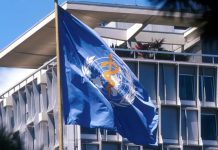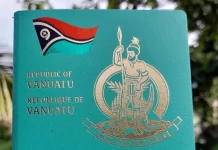The Pacific region has a unique opportunity to redefine its tourism industry and foster more inclusive and sustainable growth, according to a new report by the World Bank.
With the unprecedented disruptions caused by the COVID-19 pandemic, focusing on developing higher value tourism markets, such as adventure and cultural tourism, can provide Pacific governments and their private sectors with more environmentally and economically sustainable sources of growth.
By 2019, international arrivals in the Pacific had doubled over the two preceding decades, with the region attracting 1.8 million tourists, generating annual revenue of US$2.4 billion. Over that time this industry provided jobs for more than 71,000 people across the region, while contributing to reduced poverty and increased employment opportunities for women. In 2020 however, revenue dropped by 81 percent following region-wide border closures.
The Future of Pacific Tourism report, launched today, examines tourism trends and future opportunities in eleven Pacific Island countries – including the Federated States of Micronesia, Fiji, Kiribati, Palau, Papua New Guinea, Republic of Marshall Islands, Samoa, Solomon Islands, Tonga, Tuvalu, and Vanuatu – before and after the pandemic. By examining these trends, the report offers new insights into the economic impacts of the tourism sector.
The report provide insights on how Pacific governments can realise their goals of increasing sustainability and value in the tourism sector by targeting high-value tourism segments, such as adventure; cultural and luxury tourism segments; amongst others.
The report not only provides strategies that could possibly bolster revenue but also important recommendations for developing a greener, more resilient, inclusive, and competitive Pacific tourism sector in the context of increased arrivals. This includes, for example, increased investment in clean energy and water; better waste management; and means of promoting the conservation of natural resources.
“The World Bank is committed to supporting Pacific governments in the region with their ongoing economic recovery; and for many this means improving diversification of tourism segments,” said Stephen Ndegwa, World Bank Country Director for Papua New Guinea & the Pacific Islands. “By implementing policies that foster the development of high value tourism, Pacific Island countries have the potential to generate higher quality growth that can create jobs, reduce poverty, and generate new public revenues,” he said.
The report further underscores the importance of public support in nurturing the development of higher-value tourism markets that requires a whole-of-government approach to tourism sector management and development. That means, strengthening the collection of quality tourism data; development of human capital to meet the demands of this service intensive industry; and investments in climate-resilient infrastructure by both public and private sectors.
As the Pacific Island countries continue to welcome tourists back, this timely report provides governments with a clear framework for shaping the future of tourism in the region.
SOURCE: WORLD BANK/PACNEWS















